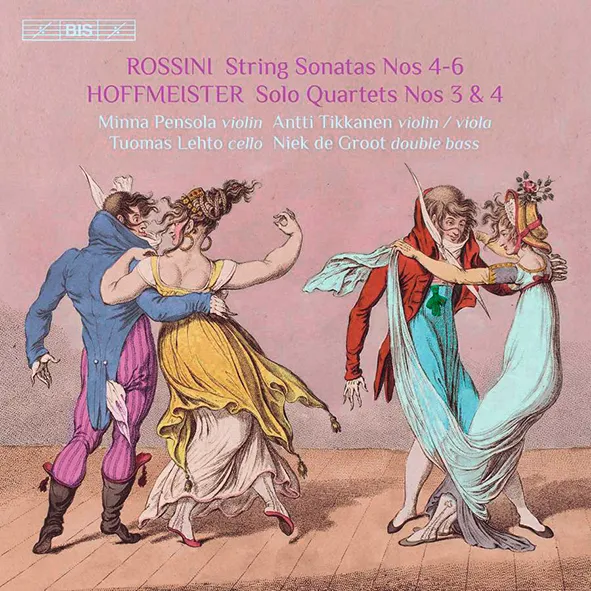
Hoffmeister Double Bass Quartets Nos 3 & 4; Rossini Sonata a quattro Nos 4, 5 & 6 Minna Pensola (violin), Antti Tikkanen (violin, viola), Tuomas Lehto (cello), Niek de Groot (double bass) BIS BIS-2318 (hybrid CD/SACD) 76:38 mins
This recording has both musical and musicological interest. When Gioacchino Antonio Rossini (1792-1868) was 12 he was asked by a rich Italian patron, Agostino Triossi – who was also a keen double bass player – if he would write some chamber music for him. Six quartets and sundry other pieces were the quick result, scored for the specific instrumental combination to hand, with Rossini himself playing second violin. In later life he dismissed the quartets as ‘terrible’ (and played down his own role in their performance as ‘doggish’), but the truth – as made plain by the excellent performances on this recording – is that this music is much more than a mere prentice effort.
There are long stretches recalling Haydn and Mozart, and the overall tone has a quintessential Habsburg decorum, and although Rossini doesn’t follow strict sonata form – stringing his melodies together with gay abandon – he already knows how to create drama. His slow movements suggest operatic arias waiting to emerge: this is the future composer of Il barbiere di Siviglia eagerly flexing his muscles. Franz Anton Hoffmeister (1754-1812) was a prolific contemporary whose chamber works also recall those of Haydn and Mozart. But the chief interest of his ‘solo quartets’ lies in the fact that they were designed to celebrate the emancipation of the double bass, thanks to two technical improvements. The wound strings were easier to play than the gut strings they replaced, and the development of tuning pegs with a screw mechanism in the peg-box made a more stable intonation possible, permitting the instrument to perform as nimbly as the upper strings. A very enjoyable disc.
Michael Church